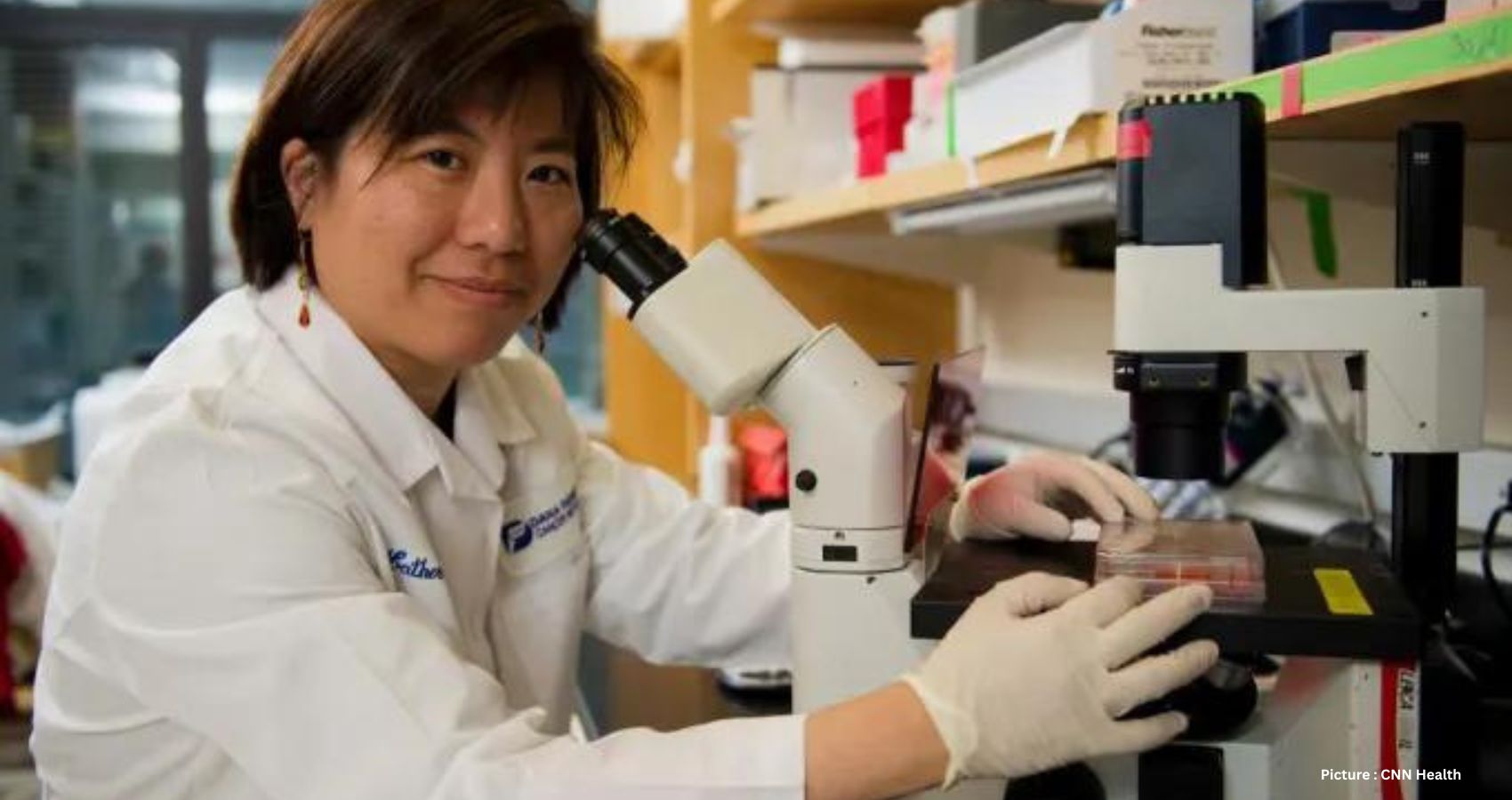Seeking a remedy for cancer serves as a significant driving force for numerous aspiring medical practitioners, though only a few manage to earnestly pursue this ambition. Among these determined individuals is Dr. Catherine Wu, an oncologist affiliated with Boston’s Dana-Farber Cancer Institute. Since the tender age of second grade, Dr. Wu has fixated her sights on combating cancer, prompted by a teacher’s inquiry about her future aspirations.
Recalling her childhood aspirations, Dr. Wu reminisces, “That’s when there was a lot of coverage on the war on cancer. I think I drew a picture of a cloud, probably a rainbow and drew a picture of (me) like, making a cure for cancer or something like that.”
Dr. Wu’s trajectory has evolved remarkably since then, with her research laying the groundwork for personalized cancer vaccines, honed to match the genetic composition of an individual’s tumor. This innovative approach holds particular promise for challenging-to-treat cancers such as melanoma and pancreatic cancer, showcasing encouraging results in preliminary trials and potentially applicable across the spectrum of cancer types.
Recognizing Dr. Wu’s seminal contributions, the Royal Swedish Academy of Sciences recently conferred upon her the prestigious Sjöberg Prize, citing her “decisive contributions” to cancer research. Professor Urban Lendahl, the committee’s secretary, underscores the perpetual need for advancements in cancer treatment, despite the strides made over the years.
Conventional cancer treatments, notably radiation therapy and chemotherapy, akin to sledgehammers, indiscriminately impact all cells, often causing collateral damage to healthy tissue. However, since the 1950s, researchers have sought methods to harness the body’s immune system, which inherently combats cancer but is frequently outmaneuvered by it. Progress on this front gained momentum around 2011 with the emergence of checkpoint inhibitors, a class of drugs amplifying the anti-tumor activity of T cells, a vital component of the immune system.
Dr. Wu’s fascination with the immune system’s prowess burgeoned during her tenure as a medical intern, where she witnessed firsthand the transformative potential of bone marrow transplants in bolstering the body’s defenses against cancer. This exposure ignited her interest in immunology, driven by the tangible outcomes observed in patients undergoing treatment.
Central to Dr. Wu’s research is the identification of minor mutations within cancerous tumor cells. These mutations, accruing as the tumor proliferates, give rise to proteins that deviate slightly from their counterparts in healthy cells. These altered proteins spawn what is known as a tumor neoantigen, recognizable by the immune system’s T cells as foreign entities susceptible to attack.
Elaborating on this aspect, Professor Lendahl describes the crucial importance of these neoantigens manifesting on the surface of tumor cells for the immune system to effectively target them.
The concept of cancer vaccines has been a longstanding pursuit within the scientific community, albeit with limited success due to the challenge of pinpointing the appropriate targets. Dr. Hans-Gustaf Ljunggren lauds the ability to identify neo-specific tumor antigens as a groundbreaking advancement in cancer research.
By meticulously sequencing DNA from both healthy and cancerous cells, Dr. Wu and her team ascertain the unique tumor neoantigens of each cancer patient. Synthetic replicas of these neoantigens hold promise as personalized vaccines, priming the immune system to recognize and combat cancer cells.
Navigating regulatory hurdles, Dr. Wu and her team championed the case for individualized vaccines tailored to each participant in their trial, overcoming skepticism regarding the unconventional approach. Subsequently, they administered a series of patient-specific neoantigen vaccines to six individuals with advanced melanoma, yielding breakthrough results published in a 2017 Nature article.
Dr. Wu expresses gratitude to the trial participants for their invaluable contribution, emphasizing the arduous journey they undertake in the pursuit of medical advancement.
In the years following the initial trial, Dr. Wu’s endeavors, alongside those of fellow researchers and pharmaceutical entities, have propelled the field of personalized cancer vaccines forward. Ongoing trials target a spectrum of cancers, including pancreatic and lung cancer, in addition to melanoma.
Despite promising outcomes, challenges persist, necessitating larger-scale randomized control trials to validate the efficacy of cancer vaccines comprehensively. Additionally, optimizing vaccine formulations and manufacturing processes remains imperative to ensure widespread accessibility and affordability.
Questions loom regarding the compatibility of cancer vaccines with existing treatments and their optimal timing within the treatment continuum. Notwithstanding these uncertainties, participants in early cancer vaccine trials attest to the transformative impact of these interventions on their lives, embodying newfound hope amidst the battle against cancer.

